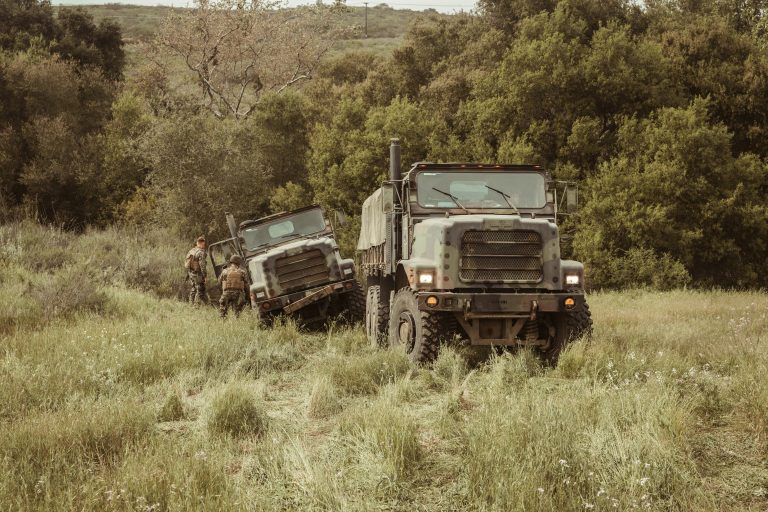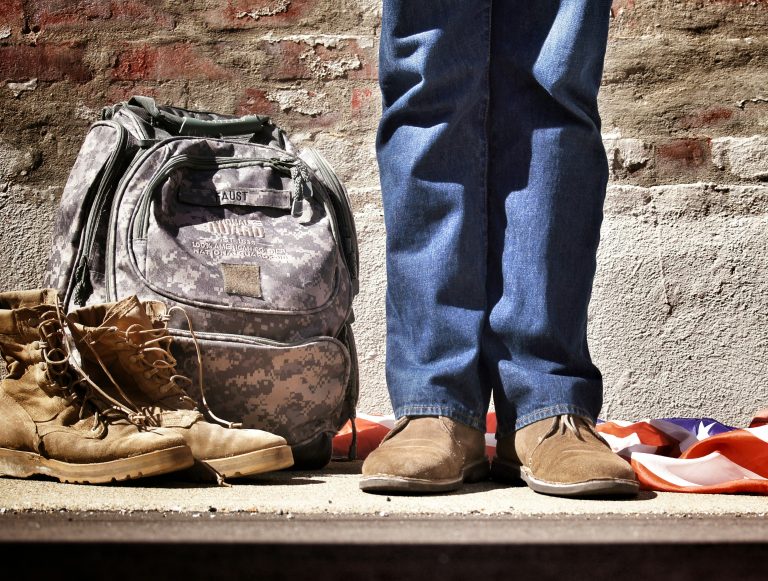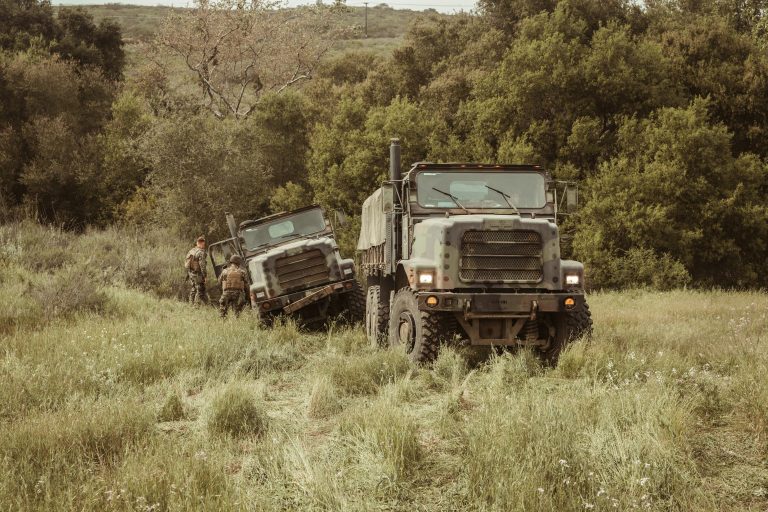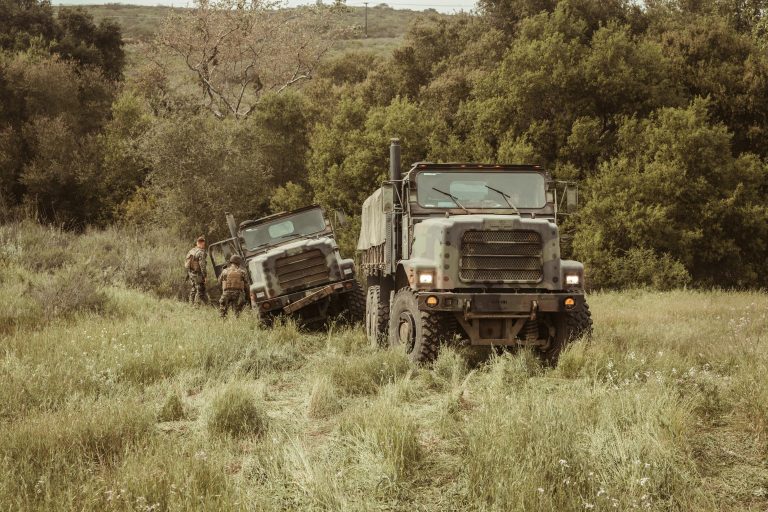Military Skills in Civilian Life
Transitioning from the military to civilian life means leveraging the invaluable skills you’ve acquired during your service. These skills can significantly enhance your effectiveness in the civilian workforce. Here, we’ll discuss three key areas: leadership abilities, financial acumen, and self-sufficiency.
Leadership Abilities
Leadership skills are among the most transferable from the military to civilian jobs. Military service instills confidence, leading by example and motivating teams. These approaches are highly valued across various industries.
- Confidence: The ability to make decisions and stand by them.
- Leading by Example: Demonstrating the standards and behavior you wish to see in others.
- Motivating Teams: Encouraging and driving team members to achieve their best.
Civilians roles that cherish these skills include management positions, team leads, and project coordinators. For practical advice on presenting these strengths in your job applications, check out military service on a resume.
Financial Acumen
Military experience often involves budgeting, financial management, and resource allocation. These skills translate seamlessly into finance and business roles in the civilian sector.
- Budgeting Skills: Ability to manage funds effectively over long periods.
- Financial Management: Experience in recording, monitoring, and reviewing financial transactions.
- Resource Allocation: Ensuring the optimal use of materials and finances to achieve objectives.
These skills are particularly beneficial in roles such as financial analyst, budget officer, and business manager. For more on effectively adapting these skills, consider visiting financial assistance for veterans.
Self-Sufficiency
The inherent self-sufficiency fostered by military training is immensely prized in civilian workplaces. Employers look for individuals who are responsible, can complete tasks independently, and require little supervision.
- Responsibility: Taking ownership of tasks and results.
- Completing Tasks: Following tasks through to completion.
- Working Independently: Able to operate without constant oversight.
These qualities open doors to various job opportunities including positions in operations, administration, and technical fields. For insights and tips on this topic, explore our section on veteran transition resources.
By understanding how these skills translate into civilian life, you can better prepare for the transition. For additional support and resources, consider enrolling in the military transition assistance program and attending military transition workshops.
Communication Skills
Effective communication is a vital skill that you, as someone transitioning from military to civilian life, certainly possess. This section explores ways to leverage these abilities to ensure a smooth shift into your new environment.
Effective Communication
In the military, you’re trained to communicate efficiently and succinctly. This skill is invaluable in civilian roles, whether you’re in a corporate setting, an educational institution, or any other industry. Effective communication involves not just speaking, but also listening actively and understanding the message being conveyed.
To harness your communication skills effectively:
- Clear Messaging: Articulate your thoughts clearly. Avoid jargon and ensure your message is easily understood by your audience.
- Active Listening: Show that you’re listening by nodding, maintaining eye contact, and providing feedback.
- Non-Verbal Cues: Pay attention to body language and facial expressions. They add depth to verbal communication.
These elements of effective communication will serve you well in civilian life, helping you to work collaboratively and navigate various professional scenarios.
Respectful Interactions
Respectful interactions form the bedrock of both military and civilian life. In your civilian career, demonstrating respect in every interaction will help you build strong, positive relationships with colleagues, superiors, and clients.
Here’s how to practice respectful interactions:
- Politeness: Use polite language. Simple phrases like “please” and “thank you” go a long way.
- Empathy: Show understanding and consideration for others’ perspectives.
- Professionalism: Maintain a professional demeanor in all your engagements.
Employing these practices ensures a harmonious workplace environment and fosters mutual respect among team members.
Communication Skills in Numbers
| Skill Area | Military Application | Civilian Application |
|---|---|---|
| Effective Communication | Orders, reports, and briefings | Team meetings, presentations, and client communications |
| Respectful Interactions | Command respect, follow protocols | Professional relationships, customer service |
Your communication skills are a key strength that can significantly aid your transitioning from military to civilian life. Additional resources on this topic can be found at the military to civilian skills translation guide and military job search strategies.
For more insights on adapting to civilian life, visit our military transition success stories and explore how others have effectively utilized these skills.
Problem-Solving Skills
When transitioning from military to civilian life, one of the most significant assets you bring to the table is your problem-solving skills. In the military, you have been trained to think fast and find solutions under pressure. These skills are highly valued in the civilian job market.
Quick Thinking
Quick thinking is a hallmark of military training. Veterans excel at making decisions swiftly and efficiently, even under stressful conditions. This ability to think on your feet can be crucial in civilian jobs, where quick decision-making can save time and resources.
For example, while serving, you likely faced numerous high-stakes situations that required immediate action. This kind of experience gives you an edge in environments where rapid problem-solving is essential.
| Skill | Percentage of Veterans |
|---|---|
| Performing Under Pressure | 50% |
| Teamwork and Collaboration | 41% |
| Problem-Solving | 39% |
Figures courtesy VFW
If you want to delve deeper into how to leverage your quick-thinking abilities, check out our military to civilian skills translation guide.
Solution-Oriented Approach
In addition to quick thinking, a solution-oriented approach is another invaluable skill you carry from your military experience. Veterans are known for their capability to identify solutions and address problems promptly (Northeastern University). This approach involves not just identifying the problem but also devising effective strategies to solve it.
Employers appreciate this hands-on, proactive approach since it can result in significant savings of time, resources, and money. In the civilian world, being able to shift gears quickly to find practical solutions can set you apart from other candidates. For guidance on this, review our article on veterans employment assistance.
When transitioning, focus on how to communicate these skills effectively, such as in a military transition cover letter. Also, for more in-depth help, refer to military transition resume writing services.
By highlighting your quick thinking and solution-oriented approach, you can showcase your unique skill set, making you a formidable candidate in the civilian workforce. Use available resources, such as military transition workshops and veterans job transition, to further hone these abilities and make a smooth transition.
For more tips and insights on transitioning from military to civilian life, explore our military to civilian career transition guide.
Challenges of Military Transition
During the process of transitioning from military to civilian life, many veterans face a variety of challenges. The journey can be complex and stressful, but understanding the common difficulties and factors affecting re-entry can help you prepare and navigate this phase more successfully.
Difficulties Reported
Transitioning from a highly structured environment to civilian life can be overwhelming. According to a Pew Research Center report, 44% of veterans who served in the ten years following the 9/11 attacks found re-entry into civilian life difficult. Here are some commonly reported challenges:
- Finding Employment: Nearly 33% of veterans list finding a job as their biggest hurdle (VFW).
- Emotional and Psychological Issues: Traumatic experiences and serious service-related injuries contribute significantly to re-entry problems (Pew Research Center).
- Stress and Anxiety: Veterans often encounter high levels of stress and anxiety during the transition, which can lead to problems in daily life and relationships.
Factors Affecting Re-entry
Understanding the factors that can complicate the transition from military to civilian life is crucial. These factors often interact in complex ways, amplifying the challenges you face.
| Factors Affecting Re-entry | Impact |
|---|---|
| Separation from Loved Ones | Increases feelings of isolation and stress. |
| Combat Stressors | Contributes to anxiety and mental health issues. |
| Witnessing Harm | Elevates risk of PTSD and depression. |
| Injury and Trauma | High likelihood of re-entry difficulties. |
Sources: NCBI, Pew Research Center.
- Mental Health Issues: Factors like separation from loved ones, exposure to combat stressors, and witnessing harm can increase the risk of depression and PTSD in both active-duty military members and veterans.
- Physical Injuries: Veterans who sustained serious injuries during service often face additional challenges and complications during their transition (NCBI).
- Social Reintegration: Adjusting to civilian social norms and building new social networks can be daunting and isolating.
For additional information and support, consider exploring resources such as the Transition Assistance Program and employment workshops geared towards veterans employment assistance. These resources can provide valuable support in overcoming the challenges of transitioning to civilian life.
Support and Resources
Transitioning from military to civilian life can be a complex process, but numerous resources are available to assist you. Understanding the available support systems is crucial for a smooth transition.
Transition Assistance Program
The Transition Assistance Program (TAP) is a cooperative interagency effort among several departments, including the Department of Labor, Department of Defense, Department of Veterans Affairs, and others, provided under 10 U.S.C. 1144 (Department of Labor). TAP aims to give transitioning service members, veterans, and their families the tools and resources needed to transition to civilian life successfully.
The TAP eLearning curriculum is available for those unable to attend in-person sessions. Approved by your TAP manager or counselor, you can access these resources through the DoD Transition Online Learning (TOL) system (Department of Labor). This flexibility ensures you receive the necessary information regardless of your location or circumstances.
Key Components of TAP:
- Pre-Separation Counseling: Mandatory sessions that help outline the available benefits and services.
- Transition Goals, Plans, Success (GPS): A standardized curriculum that includes both core requirements and individual career tracks.
- Military-to-Civilian Skills Translation: Guidance on presenting military service on a resume and articulating military to civilian skills translation.
Employment Workshops
Participating in employment workshops can significantly boost your readiness for the civilian job market. Two notable workshops offered are the EFCT and DOLEW.
- Employment Fundamentals of Career Transition (EFCT): A one-day foundational program designed to introduce you to essential tools for evaluating post-separation career options, job searches, and actions to enhance your competitiveness (Department of Labor). This workshop helps you build a solid foundation for your job search journey.
- Department of Labor Employment Workshop (DOLEW): A comprehensive two-day workshop focused on career employment best practices. Topics covered include resume building, networking, job search strategies, interview skills, and negotiation techniques (Department of Labor). Participation in DOLEW can help you prepare a strong application and perform confidently in interviews.
Key Elements Covered in DOLEW:
| Topic | Description |
|---|---|
| Resume Building | Craft a compelling resume tailored to civilian jobs |
| Networking | Learn effective networking strategies for job searches |
| Job Search | Discover essential job search tools and techniques |
| Interview Skills | Develop strong interview responses and techniques |
| Negotiation | Understand negotiation tactics for salary and benefits |
Utilizing these workshops and resources can provide a comprehensive understanding of how to translate your military experience into civilian career success. Access more veterans employment assistance to make the most of available opportunities for a successful military to civilian career transition.
For additional practical advice on adapting to civilian life, check out our section on Successful Transition Tips.
Successful Transition Tips
Transitioning from the military to civilian life can be challenging, especially as you adapt to new environments and utilize the skills acquired during your service. Here are some tips to help you navigate this change and leverage your valuable experience.
Adapting to Civilian Life
Adjusting to civilian life is a process that takes time and patience. According to VFW research, it takes veterans an average of 7 months to feel fully adapted to civilian life. Understanding the common challenges and adopting effective strategies can ease this transition.
One significant challenge is the loss of the structured military environment. Developing a daily routine can help replace this structure, providing a sense of stability. Engage in activities that promote well-being, such as regular exercise, hobbies, or attending veteran support groups.
Another aspect of adaptation is reconnecting with family and friends, which can be crucial to your emotional well-being. Social connections can provide support and help you feel grounded. For those who struggle with re-entry, such as the 27% of veterans who found it difficult (Pew Research Center), consider seeking professional counseling or participating in military transition workshops.
Utilizing Transferable Skills
Your time in the military has equipped you with various skills that are highly valuable in the civilian workforce. Recognizing and effectively communicating these skills can significantly enhance your job prospects.
Leadership Abilities
Military service instills strong leadership qualities, such as decisiveness, responsibility, and the ability to motivate and manage teams. Highlight these skills in your military service on a resume to appeal to potential employers.
Financial Acumen
Understanding and managing budgets is another skill you may possess. Translating this into civilian terms, consider roles in financial management, project oversight, or operational planning. For further guidance, explore our military to civilian skills translation articles.
Problem-Solving Skills
Your quick-thinking and solution-oriented approach to problem-solving are crucial assets. Emphasize these capabilities when applying for jobs that require critical thinking and adaptability. Our veterans job transition resources can provide additional insights on leveraging these strengths.
| Skill Type | Examples of Civilian Applications |
|---|---|
| Leadership | Team Management, Project Supervision |
| Financial Acumen | Budget Planning, Financial Analysis |
| Problem-Solving | Operations, Strategy Development |
By identifying and articulating your military-acquired skills, you will be better prepared to transition into a civilian career. Utilize the military transition career assessments to explore career paths that align with your skills and interests.
For personalized advice, engage with military transition mentor programs and attend military transition networking events. These avenues provide invaluable support and connection opportunities as you navigate your path to civilian life.







